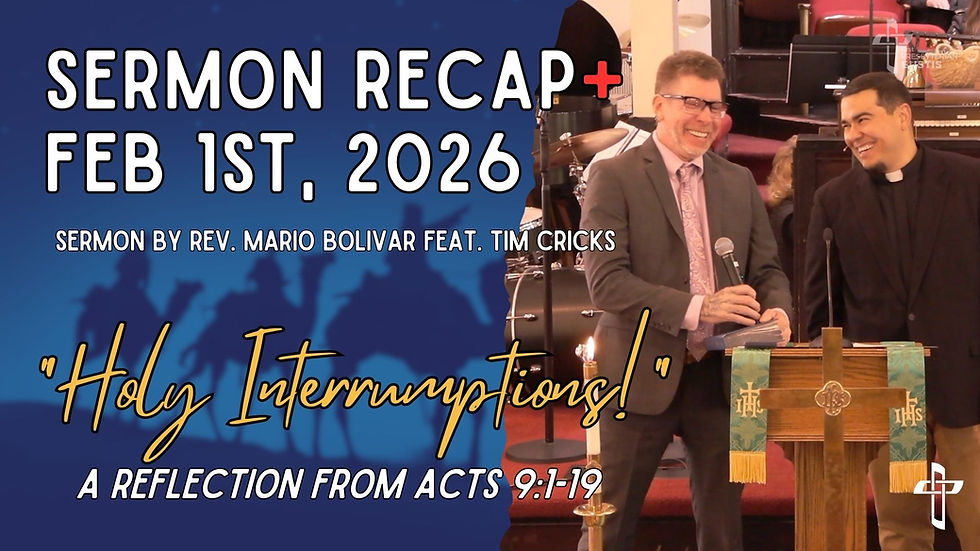The Value of the End
- Mario Bolivar
- Aug 27, 2024
- 3 min read
Seneca was a Roman philosopher from around the 1st century AD. He is quoted saying many things, even if we don't have any of his original work. As far as I know, we have copies of what he might have said. Anyway, don't think much about Seneca. We aren't studying the philosopher but an idea.
"Every pleasure is most valued when it is coming to an end."
At first glance, this may seem like a rather sad observation. After all, people often concentrate on maximizing the enjoyment of life’s pleasures without thinking about the end. However, when viewed through the lens of Christianity, this suggestion offers a powerful perspective on how we could approach and appreciate the blessings in our lives.
In Christianity, the Bible encourages us to find meaning and gratitude in every phase of our lives, including the inevitable end--to die well, some might call it. The suggestion that pleasures are most valued when they come to an end can remind us of several Biblical truths:
Gratitude and Contentment
The Apostle Paul writes in Philippians 4:11-12, “I have learned to be content whatever the circumstances. I know what it is to be in need, and I know what it is to have plenty.” This passage encourages us to find contentment and thankfulness in every situation, including the end of joyful moments. Recognizing that even the end of a pleasurable experience can be a time of gratitude helps us appreciate the gifts we've received without clinging to them.
Temporary Nature of Earthly Pleasure
Ecclesiastes 3:1 tells us, “To everything there is a season, and a time for every matter under heaven.” The idea that every pleasure has its season aligns with the biblical understanding that our time on earth is temporary and fleeting. By embracing this truth, we can enjoy and value our experiences more deeply, knowing they are part of a larger thing.
Concentrate on Eternal Things
Jesus teaches in Matthew 6:19-21 to “store up for yourselves treasures in heaven.” This passage shifts our focus from temporary pleasures to eternal joy. While we can and should enjoy earthly pleasures, we are encouraged to place our ultimate value in the eternal joy that comes from a relationship with God. This perspective can help us appreciate the beauty of fleeting moments without losing sight of the everlasting joy promised by God.
So, as we navigate our daily lives, it’s easy to get caught up in the pursuit of constant pleasure and success that we would like to last forever. The observation attributed to Seneca invites us to reflect on the beauty of experiences as they draw to a close and how this can actually enhance our appreciation of them.
Consider the moments in your life that have brought you joy—perhaps a family gathering, a meaningful conversation, or a personal achievement. Reflecting on these moments as they come to an end can help you embrace their value more fully. It also teaches us to live with an awareness of life’s impermanence and to treasure each moment with a sense of gratitude.
In the end, the wisdom from Seneca, when viewed through a Christian lens, encourages us to savor the richness of our experiences and to hold them with open hands. By doing so, we align our hearts with a deeper understanding of joy that transcends the temporal and finds its ultimate fulfillment in the eternal promises of God.
May you find comfort and inspiration in knowing that every pleasure, no matter how fleeting, holds value and beauty in the grand tapestry of life.





Comments